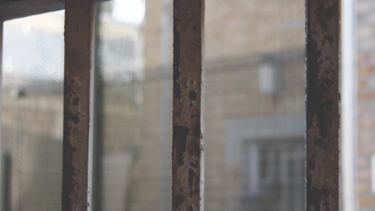Joint letter calls for urgent meeting with Home and Health Secretaries over Illegal Migration Bill
The Together With Refugees coalition said in a press release yesterday that it had joined together with a number of leading medical bodies to write to the Government and call for an emergency meeting over the harm that the Illegal Migration Bill would cause by allowing the indefinite detention of children.
 A joint letter was sent to Home Secretary Suella Braverman and Health Secretary Steve Barclay by the Royal College of Paediatrics and Child Health (RCPCH), the British Medical Association (BMA), the Royal College of Psychiatry, and the Faculty of Public Health.
A joint letter was sent to Home Secretary Suella Braverman and Health Secretary Steve Barclay by the Royal College of Paediatrics and Child Health (RCPCH), the British Medical Association (BMA), the Royal College of Psychiatry, and the Faculty of Public Health.
Spokespersons for all of the medical bodies outlined their very serious concerns with the Bill's impact on the health of children.
Dr Adrian James, president of the Royal College of Psychiatrists, said it is "wholly unacceptable" that the Bill would potentially permit children to be detained for indefinite periods.
Dr Jan Wise of the BMA warned that immigration detention is unsafe for children, and said placing children in indefinite detention can have a "catastrophic impact" on their development and psychosocial health. "For medical and humanitarian reasons, it is essential that these children and young people are spared detention and provided with appropriate care and treatment," Wise added.
Professor Andrew Rowland, the child protection officer for Royal College of Paediatrics and Child Health, stated: "In 2010 RCPCH argued against the routine detention of children for immigration purposes and the government rightly ended that practice, agreeing that the risk of mental and physical injury was unacceptable. It is beyond belief that now over a decade later we find ourselves in that position again. Detaining children for indefinite periods of time can cause unimaginable levels of harm and trauma. Children currently undergoing vital initial health assessments often have serious illnesses or injuries identified, many of which require prompt treatment. Any delay in them receiving the healthcare they need will adversely affect their health, in potentially catastrophic ways. The proposals set out in this bill will merely exacerbate this issue by preventing children from being promptly placed in an appropriate environment to meet their needs; and by not providing children with the level of healthcare that they deserve, need, and are entitled to. This is cruel, dangerous and a flagrant violation of their children's rights."
The president of the Faculty of Public Health, Professor Kevin Fenton, said the evidence is clear that detention causes "horrific harm" to the physical and mental health of children and it has lifelong consequences.
As noted by Together With Refugees in its press release, Médecins Sans Frontières yesterday released a 4-page briefing (available here) which outlines the impact that detention had on refugee children in Greece and in Australia's immigration detention facility on the island of Nauru.
MSF explained: "This briefing note highlights the significant damage detention and containment inflict on children's health and well-being using medical evidence and testimony from MSF projects on the Greek islands and the Island of Nauru. Considering the devastation we have witnessed, MSF is particularly alarmed that the UK government cites Australia's offshore and detention policies and Greece's de-facto detention approach of containing people in large-scale centres as a model for its own policy. This briefing builds on the plethora of clear medical evidence that demonstrates the grave consequences of detaining children. It should serve as a warning against (re)introducing these plans in the UK."
According to the briefing, there is clear medical evidence that immigration detention is damaging to the mental health of those detained and has long-lasting impacts, with children particularly affected. MSF says to detain and contain children is an affront to their health, welfare and safety, and there are no circumstances under which it is acceptable.
Earlier this year in April, three Australian paediatricians writing for The Conversation highlighted the harm caused by Australia's immigration detention system, including on Nauru and Papua New Guinea (PNG).
"We have just published a study describing the health of asylum-seeker children who experienced detention attending our Refugee Health Clinic over the past ten years. Our team has been seeing refugee children for more than 20 years. We have extensive experience in refugee health, forensic medicine and child development, but nothing prepared us for the complexity of looking after these children," the paediatricians stated.
The study found that the trauma and deprivation of immigration detention had a profound impact on children's health. Two-thirds had a mental health problem (most commonly anxiety, depression and/or post-traumatic stress disorder) and 75% presented with developmental concerns.
You can read the full study here on PLOS One. It concludes: "This study provides clinical evidence for the adverse impact of held detention on children's physical and mental health, development and wellbeing. … The environment of immigration detention was unsafe and harmful for children and must not be repeated. Policymakers must recognise the consequences of detention, and avoid detaining children and families, and Australian policies should not be emulated."